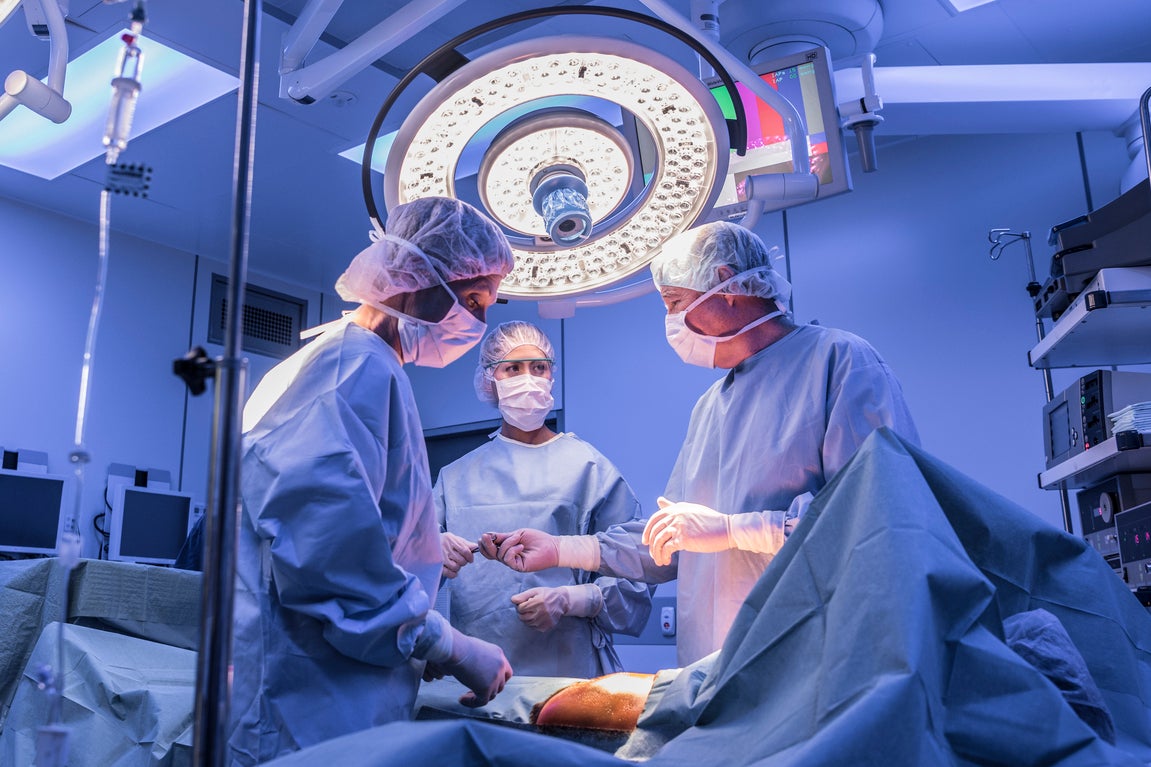How to focus better at work: top surgeons reveal their secrets
Mainlining coffee is not the solution

Your support helps us to tell the story
This election is still a dead heat, according to most polls. In a fight with such wafer-thin margins, we need reporters on the ground talking to the people Trump and Harris are courting. Your support allows us to keep sending journalists to the story.
The Independent is trusted by 27 million Americans from across the entire political spectrum every month. Unlike many other quality news outlets, we choose not to lock you out of our reporting and analysis with paywalls. But quality journalism must still be paid for.
Help us keep bring these critical stories to light. Your support makes all the difference.
There are few professions that require such prolonged focus as surgeons. It’s not unusual for a liver transplant to take ten hours, requiring those carrying out the surgery to stay on their feet, take minimal loo breaks and remain incredibly focussed the whole time.
Outside the operating theatre, however, most of us are suffering from dwindling attention spans. Thanks to an ever increasing array of digital devices vying for our attention, it’s not uncommon to be unable to focus on a 45-minute TV programme without simultaneously scrolling through Instagram or reading an article online.
This has had an effect on our working lives too, leaving younger generations in particular struggling to really concentrate at work. And considering the majority of us sit down at desks all day and are able to have tea and toilet breaks whenever we fancy it, the incredible focus of surgeons is all the more impressive.
As a surgeon, you can’t afford to have a bad day just because you're a bit tired. So just how do they do it?
1. Do yoga
Spending hours on end bent over an operating table used to leave Dr Jay Graham with terrible neck and back pains, but then he took up yoga - just an hour every morning did the trick and made his pain go away. Dr Graham also keeps his body in tip-top condition by eating a vegan diet and running as many as 30 miles a week.
2. Listen to music
For Dr. Milan Kinkhabwala, chief of transplant surgery at Montefiore Einstein Center for Transplantation, in Bronx, N.Y., listening to music helps to keep his stress levels down and reduce fatigue. He has a 14-hour playlist including old favourites like “The Girl From Ipanema” and “Raindrops Keep Falling on My Head.”
3. Stop checking your phone
Minimise distraction by keeping your phone in your bag. “Our phones were designed to help us at work but now they're distracting us from it,” says Tanya Goodin, founder of digital detox specialists Time to Log Off. “It's estimated we check them over 150 times a day and that's making us unproductive and struggling to focus on one task at a time,” she adds. Unsurprisingly, no one checks their phone in the operating theatre.
4. Wear something comfortable
Simple but effective, dressing comfortably will mean you're not distracted by your rubbing shoes/itchy jumper/zip digging in, and can then get on with your work better. “I have super-tight support stockings and I can stand for 10 hours without being tired,” Dr. Sarah Bellemare told the Wall Street Journal.
5. Meditate
In such a high-pressure job, where you’re literally in a life or death situation, staying calm is critical. For 37-year-old Buddhist Dr. Attasit Chokechanachaisakul, meditation is the answer. If you find yourself “in a bad situation in surgery, you have to be very calm to be able to cope,” he reveals.
So take a deep breath, take off the heels, put your phone away and get ready to ace your work.
Join our commenting forum
Join thought-provoking conversations, follow other Independent readers and see their replies
Comments